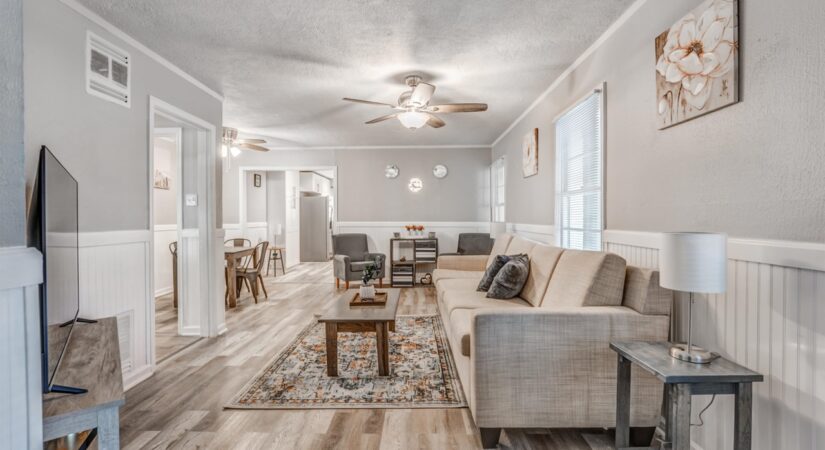The real estate market has seen significant changes over the years, and with new technology and digital marketing strategies, some wonder if traditional open houses are still an effective way to sell a home. As we move into 2024, is holding an open house a smart marketing strategy? The answer depends on several factors, including the local market, buyer preferences, and how well the open house is executed. Let’s explore the pros and cons of holding an open house in today’s real estate landscape.
The Benefits of Holding an Open House
- Increases Exposure
An open house provides an opportunity to showcase your home to a wide audience, including potential buyers who may not have scheduled private showings. It can draw foot traffic and generate interest, especially from curious neighbors or people casually looking for a new home. By making it easy for anyone to stop by, open houses offer exposure that more targeted private showings may not. - Creates a Low-Pressure Environment
Some buyers feel uncomfortable scheduling a private showing and may prefer the casual atmosphere of an open house. They can explore the property at their own pace, ask questions in real-time, and get a feel for the space without feeling pressured to make immediate decisions. This relaxed environment can attract buyers who are just starting their home search. - Boosts Market Buzz
Open houses can create a sense of urgency and excitement, especially in hot markets. Having multiple visitors at once can lead to more interest in the property and even spark competition among buyers. A busy open house may give the impression that the home is highly desirable, encouraging serious offers. - Efficient Marketing Tool
Instead of scheduling multiple private showings, an open house allows you to market your property to several potential buyers at once. This can be particularly helpful for sellers with busy schedules or those who want to limit disruptions to their day-to-day lives. Plus, it gives real estate agents the chance to interact with multiple prospective buyers at the same time, streamlining the process.
The Drawbacks of Open Houses in 2024
- Attracts Unqualified Buyers
One downside of open houses is that they can attract unqualified buyers or people who are simply curious about the home but have no intention of making an offer. This can lead to a lot of foot traffic without any serious leads, which may not be the best use of time for the seller or agent. In today’s competitive market, focusing on buyers who are pre-approved and ready to make an offer might be a more efficient approach. - Increased Focus on Digital Marketing
With the rise of virtual tours, online listings, and social media marketing, more buyers are starting their home search online. In 2024, many buyers prefer to browse detailed listings, photos, and 3D virtual tours before deciding to see a home in person. This means an open house may not always be necessary if the property is marketed effectively through digital channels. - Safety and Privacy Concerns
Holding an open house means letting a wide range of people into your home, which can raise concerns about privacy and security. While most attendees will be serious buyers, others may be curious neighbors or even people with ulterior motives. Some sellers are uncomfortable with the idea of strangers walking through their home, making private showings a more controlled and secure option. - Limited Reach
Open houses are inherently limited by geography—only those nearby or willing to drive to the location can attend. In contrast, online listings and digital marketing campaigns can reach a much broader audience, including out-of-town buyers or investors. This could be a significant drawback for sellers in today’s market, where buyers may be looking from across the country or even internationally.
Making the Most of an Open House in 2024
If you decide to hold an open house, there are several strategies to maximize its effectiveness in 2024:
- Combine with Digital Marketing: Even if you’re hosting an open house, make sure your property is also marketed online. Use social media platforms, real estate websites, and email campaigns to advertise the event and attract more attendees.
- Stage the Home: A well-staged home creates a great first impression. Declutter, clean, and arrange furniture to showcase the property’s best features. This helps potential buyers visualize themselves living in the space.
- Target the Right Audience: Work with your real estate agent to target serious buyers, such as those who have expressed interest in the area or type of home. Pre-advertising the open house to pre-approved buyers can increase the chances of attracting qualified leads.
- Offer Virtual Attendance: For buyers who can’t attend in person, consider offering a live virtual open house via platforms like Zoom or social media live streams. This hybrid approach can help you reach a broader audience and increase exposure beyond your local market.
Conclusion: Is an Open House Right for You?
While open houses can still be a smart marketing strategy in 2024, they are most effective when combined with digital marketing efforts and targeted advertising. The real estate market continues to evolve, and while some buyers appreciate the traditional open house experience, others prefer the convenience of virtual tours and online listings. Ultimately, the decision to hold an open house should be based on your property, your target buyers, and your market’s unique dynamics.
If you’re unsure whether an open house is the right strategy for selling your home, consult with your real estate agent. At GrandPointRealty.com, we offer expert advice and tailor marketing strategies to ensure your home gets the attention it deserves, whether through traditional methods or cutting-edge digital tools.
This draft balances the pros and cons of open houses, providing insight into whether they are a smart marketing strategy for 2024. Let me know if you’d like any adjustments!




